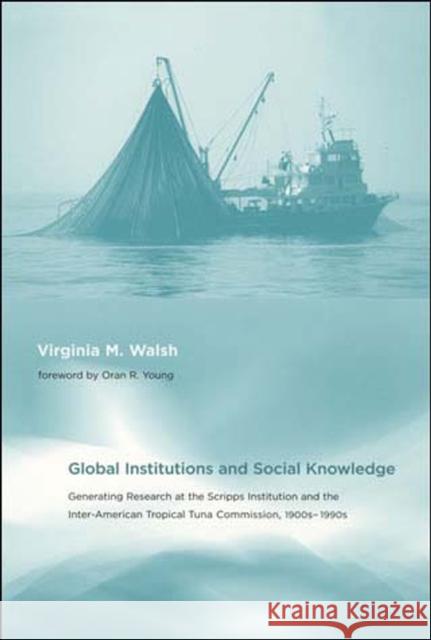Global Institutions and Social Knowledge: Generating Research at the Scripps Institution and the Inter-American Tropical Tuna Commission, 1900s-1990s » książka
Global Institutions and Social Knowledge: Generating Research at the Scripps Institution and the Inter-American Tropical Tuna Commission, 1900s-1990s
ISBN-13: 9780262731676 / Angielski / Miękka / 2004 / 208 str.
Global Institutions and Social Knowledge: Generating Research at the Scripps Institution and the Inter-American Tropical Tuna Commission, 1900s-1990s
ISBN-13: 9780262731676 / Angielski / Miękka / 2004 / 208 str.
(netto: 133,40 VAT: 5%)
Najniższa cena z 30 dni: 138,97
ok. 16-18 dni roboczych.
Darmowa dostawa!
This theoretical and empirical study examines the influence of global institutions on the generation of scientific knowledge. Virginia Walsh's approach reverses the traditional focus of international relations literature -- which most often deals with how scientific knowledge influences institutions -- and offers an original way to look at international environmental governance. After proposing a theory of institutional mechanisms by which global institutions shape the generation of knowledge, the book turns to detailed case studies of two institutions in the under- studied but vital area of marine science, the Scripps Institute of Oceanography and the Inter-American Tropical Tuna Commission, to illustrate these mechanisms.In part 1, "Theory," the book identifies three specific mechanisms or "fixes" that provide the means by which institutions shape the generation and use of knowledge. With the positional fix, key individuals use their social roles or positions in an institution to influence the beliefs of members or fix the direction of research. The statutory fix occurs when beliefs gain acceptance as a consequence of being embedded in rules or treaties. The committee fix is illustrated in the regularized practices through which social groups accept statements as group beliefs. Part 2, "Evidence," shows these mechanisms at work in the two case studies. The Scripps Institution, for example, illustrates the positional fix, as successive directors used their position to frame research. The Inter-American Tropical Tuna Commission, on the other hand, exemplifies both the statutory fix and the committee fix in its regulatory actions.











